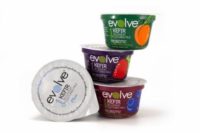Familiarity with Probiotics

The annual benchmarking survey, which interviewed 2,000 Americans ages 18 and older, tracks awareness and perceptions of probiotics. It shows that nearly two-thirds of Americans are familiar with the term “probiotics,” up from about half in 2009. Currently, 45% of Americans consider themselves very or somewhat knowledgeable on the subject, compared to 36% in 2009. In addition, the survey reveals that Americans are making health-conscious decisions about the foods they eat, with six in 10 saying they have made food purchases driven by health concerns.
Here are some of the common myths and misperceptions uncovered by the survey, and the facts to set them straight:
* Nearly one-quarter of survey respondents (22%) believe that ALL bacteria can make you sick. In reality, just the opposite is true: Probiotics are live bacteria that, when consumed in adequate amounts, provide health benefits , which include help supporting the immune system, helping regulate the digestive system, and helping maintaining oral health.
* One-third of respondents feel uncomfortable eating foods that contain bacteria. “What these individuals don’t realize,” noted Glassman, “is that eating certain foods containing probiotics can help regulate the digestive system, when consumed as part of a balanced diet and lifestyle. Adding a component to your daily diet that helps your digestive system, such as a yogurt containing probiotics, is a great way to help keep your digestive health in check and make you feel better overall,” she said.
* Some 30% of Americans are unaware that different strains of probiotics have different benefits. There are numerous categories and subcategories of probiotics, and each strain may offer different benefits when consumed. “Be a smart shopper and carefully read the claims on product packaging so you understand the potential benefits,” said Glassman. “If you don’t see the information you’re looking for, try visiting the product website or calling the manufacturer; if a product truly contains probiotics, the manufacturer will have information about clinical studies readily available.”
From the December 1, 2011, Prepared Foods' Daily News.
Looking for a reprint of this article?
From high-res PDFs to custom plaques, order your copy today!







